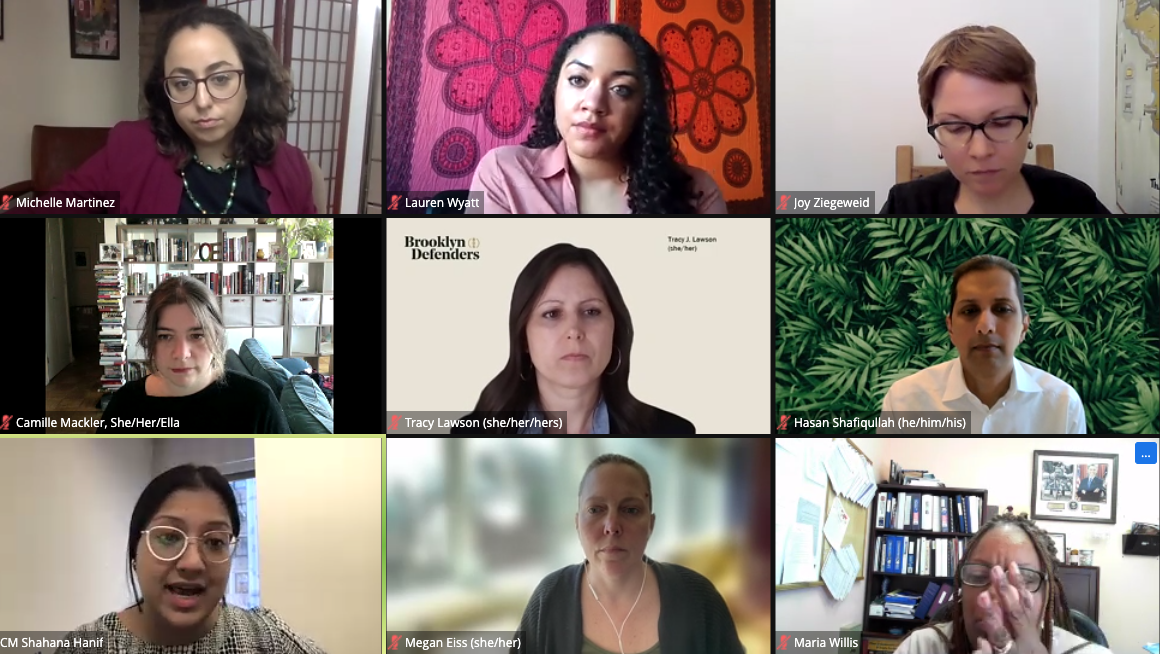Immigrant legal service providers call for funding boost
/A group of legal service providers gathered virtually to urge lawmakers to allocate additional funds for immigrant legal services. Screenshot via Zoom
By Rachel Vick
A group of legal service providers rallied virtually Wednesday to urge the city to boost funding for legal services for immigrant New Yorkers.
Immigrant Advocates Response Collaborative, City Council Immigration Chair Shahana Hanif, Catholic Charities, Legal Aid Society and Urban Justice Center and Central American Legal Assistance gathered virtually to request an approximately $3 million increase in funding.
“New York State and New York City continue to lead the country in this recognition of the need for funding for immigration legal services,” said Camille Mackler, the founder and executive director of the Immigrant Advocates Response Collaborative. “The impact of having a lawyer on the outcome of your immigrtaion case is tremendous.”
“We're asking for modest increases by usual budget standards,” she added. “But the increase they will have cannot be understated.”
Individuals facing deportation have a 14 percent greater chance of winning their case with representation, according to Mackler. Asylum seekers have a five times greater chance of winning their case with representation, according to the American Bar Association.
The change in temporary protected status for Ukrainian refugees amid the ongoing crisis in Ukraine, in addition to crises experienced by Afghan, Cameroonian and Haitian refugees, are compounding existing issues with meeting needs, said Hasan Shafiqullah, attorney-in-charge for the Immigration Law Unit at The Legal Aid Society .
The increased funding would support efforts by organizations including the New York Immigrant Family Unit and the Immigrant Children Advocates Relief Effort, which Shafiqullah said plays a crucial role in protecting some of the youngest individuals at risk of deportation.
“We need to increase our capacity to meet these emerging needs,” Shafiqullah said. “What's keeping these young people from being deported, if you’re 12 and you don’t speak english, you’re up against a trained government lawyer — you're going to lose, so ICAR has made a
difference there.”
A major philanthropic funder to the organization will no longer be financially supporting the efforts for the first time in eight years, leaving a major gap in funding the organization is hard pressed to fill.
Hanif, who chairs the Immigration Committee, said she was “inspired” by the advocacy ahead of the conversation around funding discussions, and as migration coincides with continued pandemic struggles.
“The attorney is usually the first point of contact to receiving other services, so I recognize how critical the relationship is for immigrant communities with their legal service providers,” Hanif said. “These services are life saving; I don’t have to say that twice.”




